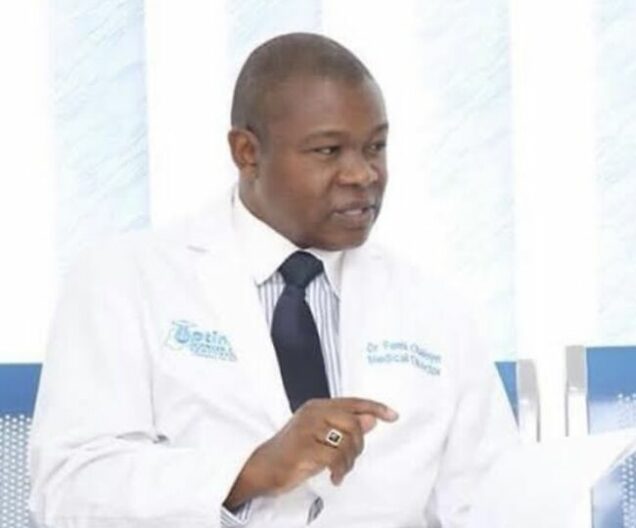The Lagos Division of the Court of Appeal is currently deliberating on the appeal of Dr. Olufemi Olaleye, the Medical Director of Optimal Cancer Care Foundation, who was convicted in October 2023 for the rape of his wife’s teenage niece. Justice Rahman Oshodi, presiding over the Lagos State Sexual Offences and Domestic Violence Court, found Dr. Olaleye guilty and sentenced him to life imprisonment, declaring the prosecution’s case compelling. In light of the serious nature of the charges and the ruling, the case has garnered significant attention, particularly given its implications for justice in cases of sexual offenses.
Dr. Olaleye’s legal team, led by renowned senior advocate Kemi Pinheiro, has filed a comprehensive appeal with 35 grounds, arguing that the conviction should be overturned. Central to their appeal is the claim that there was no direct evidence substantiating the age of the alleged victim, asserting that the prosecution failed to provide documentation proving she was 16 at the time of the offense. The defense emphasizes this point as fundamental, identifying the victim’s age as critical to establishing the charge of defilement, which necessitates that the victim be underage.
The defense has also raised concerns about the reliability of the alleged victim’s testimony, arguing that it contains numerous inconsistencies. It was noted that the victim did not initially accuse Dr. Olaleye of rape when she reported the incident to the police, casting doubt on her credibility. Pinheiro insists that the contradictory nature of the testimony undermines the prosecution’s case, which they argue should have been carefully scrutinized during the trial. This contention highlights a broader legal principle about the importance of consistent testimony in securing criminal convictions.
Conversely, the prosecution has staunchly defended the integrity of the original trial, arguing that it successfully established the charges of defilement and sexual assault beyond a reasonable doubt. The prosecution insists that proof of the victim’s underage status, alongside the occurrence of sexual intercourse with the accused, was sufficiently demonstrated as required by law. They contend that the trial judge made a sound judgment based on the evidence presented and that all elements of the offenses were proven. The prosecution has also rejected the defense’s claims of contradictions, asserting that their witnesses provided consistent and credible accounts.
The appellate panel, which includes Justices Olukayode Bada, Mohammad Sirajo, and Folasade Ojo, has heard arguments from both the defense and the prosecution and is now in the process of reviewing the case. The deliberation on this matter underscores the complexities often involved in legal cases concerning sexual offenses, where the interplay of evidence, witness credibility, and legal standards can lead to significant implications for those involved. The reserve of judgment indicates the careful consideration required in such serious matters, ensuring that a fair and just outcome is reached based on the laws governing sexual offenses.
As the case continues to unfold, it brings to light critical discussions regarding legal frameworks surrounding sexual assault and the challenges of providing evidence in such sensitive instances. The outcome of Dr. Olaleye’s appeal will not only affect his life but could also set precedents for future cases involving allegations of sexual misconduct, particularly in how age and consent are established in court. The Court of Appeal’s judgment will be anticipated closely by legal experts, advocates for victims, and the public, reflecting the ongoing struggle for justice within the realm of sexual offences in Nigeria.














